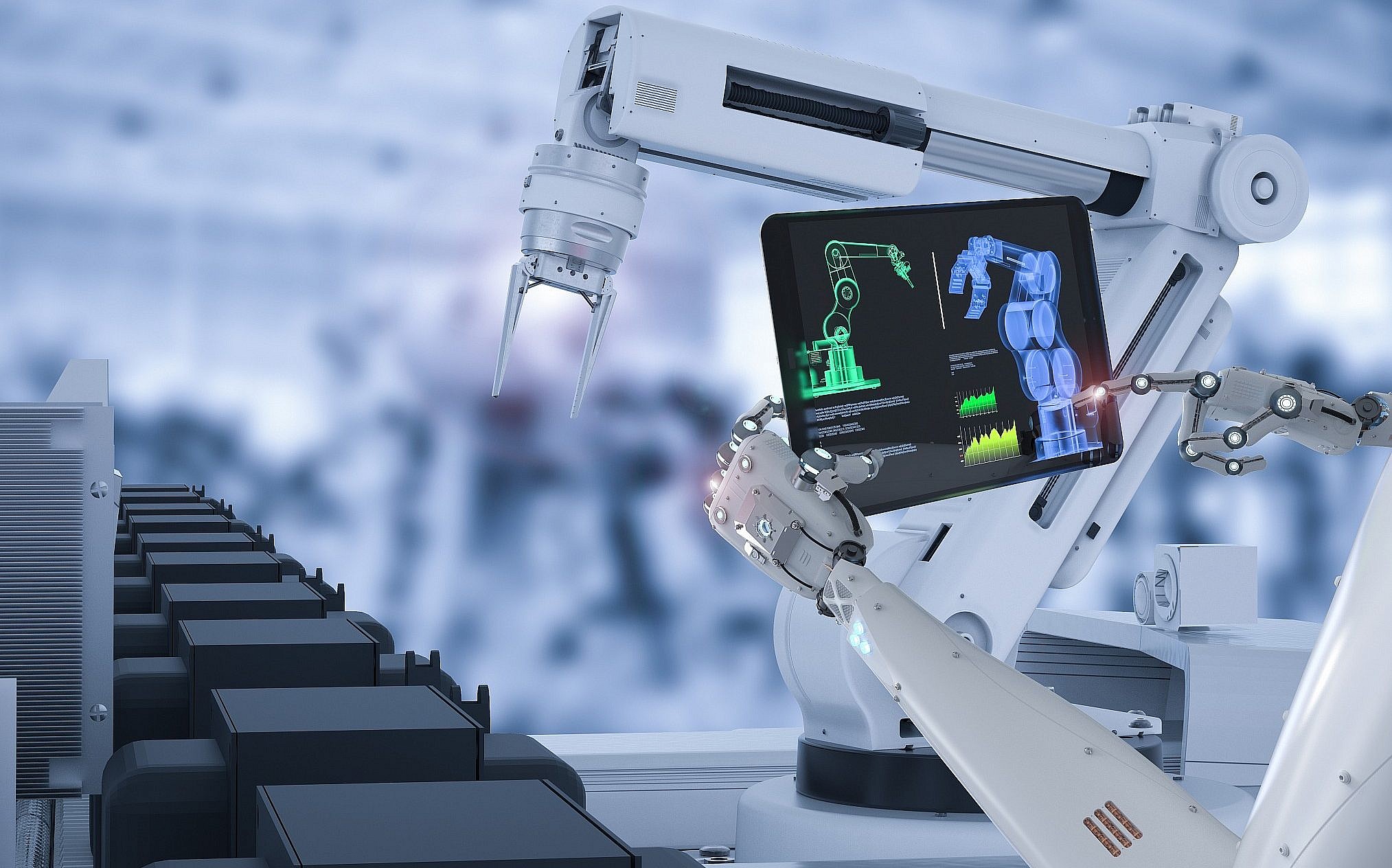The manufacturing industry has been evolving rapidly over the past few decades, with technological advancements driving innovation and efficiency. Among the most transformative forces is Artificial Intelligence (AI), which is revolutionizing the landscape of manufacturing automation. As we look ahead to 2025, AI-powered automation is poised to play an even larger role, enabling businesses to optimize their processes, improve quality, and achieve higher productivity with lower costs. In this article, we explore how AI is enhancing manufacturing automation, its applications, and the significant benefits it offers to businesses and consumers alike.
What is AI-Powered Manufacturing Automation?
AI-powered manufacturing automation refers to the integration of artificial intelligence with automated systems in manufacturing environments. AI brings capabilities like machine learning, data analysis, and decision-making to automation processes. Unlike traditional automation, which simply follows preset rules, AI allows machines to learn from data, adjust their actions in real-time, and continuously improve over time. This enables manufacturers to operate more efficiently, make smarter decisions, and reduce human involvement in repetitive tasks.
The role of AI in manufacturing will only grow in importance by 2025, transforming everything from production lines to supply chains. Key areas where AI is making an impact include predictive maintenance, robotic automation, quality control, inventory management, and supply chain optimization.
Key Applications of AI in Manufacturing Automation
AI-powered automation is already a reality in many manufacturing plants, but by 2025, these technologies will be ubiquitous. Here are some critical ways AI will continue to revolutionize the industry:
1. Predictive Maintenance and Asset Management
AI is revolutionizing the way manufacturers approach equipment maintenance. Traditionally, maintenance schedules are set based on fixed intervals, often leading to unnecessary downtime or unexpected breakdowns. AI changes this by utilizing predictive maintenance systems that analyze data from sensors embedded in machinery to predict when a failure might occur. By doing so, manufacturers can perform maintenance only when needed, preventing unnecessary repairs and ensuring continuous production.
The impact of predictive maintenance is vast—it reduces downtime, minimizes repair costs, and extends the lifespan of equipment. In the coming years, companies will rely on AI to enhance the reliability and efficiency of their machines, a shift that aligns with the broader trend of AI and automation in business operations.
2. Intelligent Robots and Collaborative Automation
AI-powered robots have been in manufacturing for years, but their capabilities will continue to expand. By 2025, AI will enable robots to become far more intelligent and adaptable, able to collaborate seamlessly with human workers in a shared workspace. These collaborative robots (or cobots) will be able to handle complex tasks that were previously done only by humans, such as assembling intricate components or testing for product defects.
AI-driven robots will also be able to learn new tasks and improve their performance based on feedback, allowing for greater flexibility and scalability in production. In combination with other technologies such as AI technologies tools, robots will become more autonomous, providing a more agile and efficient manufacturing process.
3. Quality Control and Defect Detection
AI has a powerful role in quality control, ensuring that products meet the highest standards. Traditional quality checks are often slow and prone to human error, leading to potential defects in the final product. AI, however, can automate the quality control process by using machine learning algorithms to analyze images or sensor data for defects. These systems can identify flaws like scratches, misalignments, or inconsistencies in real time, improving both the speed and accuracy of inspections.
As AI continues to evolve, quality control systems will become even more precise, driving down production costs and reducing waste. Manufacturers will be able to identify root causes of defects and eliminate them early in the production cycle, making AI-powered automation essential for businesses seeking to enhance product quality.
4. Supply Chain Optimization
AI plays an important role in optimizing supply chains, ensuring manufacturers can respond faster to market demands and reduce operational inefficiencies. By analyzing data from various sources, AI algorithms can predict demand patterns and optimize inventory levels. Supply chain automation, powered by AI, reduces human error, prevents overstocking or understocking, and improves logistics efficiency.
Furthermore, AI can help manufacturers track and manage their suppliers more effectively by analyzing supplier performance and optimizing order fulfillment. AI will continue to transform how manufacturers approach sustainable businesses, creating a more transparent, cost-efficient, and agile supply chain. By 2025, AI’s role in supply chain management will be indispensable for ensuring smooth operations and better customer service.

5. Customization and Mass Personalization
As consumer preferences shift toward more personalized products, AI will help manufacturers offer mass customization without sacrificing efficiency. By utilizing AI-powered systems, manufacturers will be able to quickly adapt their production lines to create personalized products that meet specific customer preferences. Whether it’s in the e-commerce innovations space or product design, AI will enable businesses to customize products on a large scale while maintaining high efficiency.
In 2025, consumers will expect greater control over the products they purchase, and AI will be critical in meeting those demands. From fashion to electronics to automotive industries, AI-powered automation will make mass personalization possible in ways that were previously unthinkable.
Benefits of AI in Manufacturing Automation
The integration of AI into manufacturing automation offers a wide array of benefits, not just for manufacturers, but for workers, consumers, and the environment as well. These include:
1. Increased Efficiency
AI enables manufacturers to optimize production processes, reduce waste, and minimize downtime. Automation systems can make real-time adjustments based on data, leading to smoother workflows and faster production times. This increased efficiency translates to higher productivity, faster turnaround times, and lower operational costs.
2. Cost Savings
By streamlining operations and predicting maintenance needs, AI helps companies save on repair and downtime costs. Furthermore, by eliminating inefficiencies in the supply chain and production lines, manufacturers can reduce waste, lower energy consumption, and cut costs. These savings can be reinvested into the business, driving innovation and growth.
3. Better Product Quality
AI-powered quality control systems ensure that products meet the highest standards with minimal defects. This results in improved customer satisfaction, reduced returns, and enhanced brand reputation. The ability to track defects and learn from production data will help manufacturers achieve higher product quality with less effort.
4. Flexibility and Scalability
AI’s adaptability makes it easier for manufacturers to scale their operations, adjust to new market demands, and handle more complex production tasks. With robots and automation systems that can adapt and learn, manufacturers can adjust their production lines quickly without the need for major overhauls.
5. Reduced Environmental Impact
AI-powered automation plays a key role in making manufacturing more sustainable. By optimizing energy consumption and reducing waste, AI helps companies reduce their carbon footprint. As AI tools continue to evolve, manufacturers will be better equipped to create sustainable businesses that meet both consumer demand and environmental standards.
The Future of AI in Manufacturing
Looking toward 2025, the use of AI in manufacturing will be even more integral to the industry’s evolution. AI-driven trends like machine learning, collaborative robots, and advanced data analytics will continue to shape the future of manufacturing. By integrating AI with other cutting-edge technologies such as the Internet of Things (IoT), 5G, and blockchain, manufacturers will unlock even more possibilities for smart factories and intelligent production systems.
In the near future, manufacturers that embrace AI and automation will be better positioned to stay competitive, reduce costs, improve product quality, and meet customer demands more effectively. The future of manufacturing is intelligent, efficient, and powered by AI.
Conclusion
AI-powered manufacturing automation is transforming the industry, enabling businesses to achieve greater efficiency, reduce costs, and improve product quality. With applications ranging from predictive maintenance to supply chain optimization, AI is shaping the future of manufacturing in unprecedented ways. As we look ahead to 2025, AI will continue to enhance manufacturing processes, making them smarter, more sustainable, and more customer-centric than ever before. Embracing these technologies will not only help manufacturers stay competitive but will also provide them with the tools to innovate and thrive in a rapidly changing market.
For more insights on how AI and automation are shaping business operations, visit our blog on AI and Automation.

